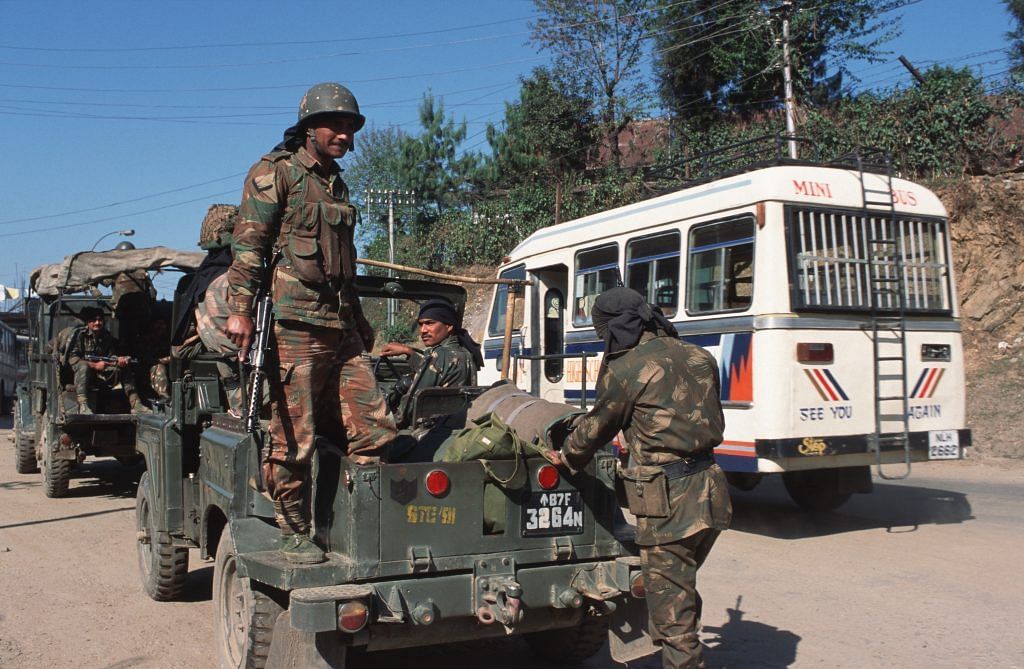Lt. General D.S. Hooda (retd), then chief of Northern Command, says ‘overhype’ around the success of surgical strikes was unwarranted.
Chandigarh: Retired Lt. General D.S. Hooda, who was heading the Northern Command when his units conducted the surgical strikes on terrorist camps in Pakistan in 2016, said Friday that no politician was involved in the planning or execution of the strikes.
Hooda said that the final approval did come from the political leadership of the country, but the operation had nothing to do with politics.
He also said that the “overhype” around the surgical strikes was unwarranted.
The retired Army man made the comments while moderating a session on Role of cross border operations and surgical strikes on the inaugural day of the second edition of the Military Literature Festival organised by the Punjab government.
The three-day festival began at the Lake Club, Chandigarh, Friday.
“Political dissonance is not good for military operations. In fact, all political parties need to come together for a strategic success. Too much banter on military operations is not good,” said Hooda.
He added, “But was there a need to publicise it (at all)? I think we had no option.
“Too many questions were being raised. Not just by the media and others but our soldiers too. What were we doing? So the message had to be clearly conveyed,” said Hooda.
Two years ago, on the night of 28-29 September, teams from two battalions of the Indian Army’s para-commandos infiltrated across the LoC and took down what was reported as five terrorist launchpads, in response to an attack by terrorists on the Uri base of Indian Army.
Also read: India’s original surgical strike: How the Haji Pir pass was captured in 1965
‘Other side was in a state of shock’
Speaking about the hype around the success of the strikes, Hooda said it may induce caution for future operations.
“We may find it better to remain quiet (next time),” he said.
Hooda said the strikes were carried out with simplicity of purpose. Since the end of 2013, terrorists were targeting Army bases in India. After July 2016, the Army was under pressure, especially after the increased unrest in Kashmir following the death of Hizbul Mujahideen commander Burhan Wani.
“After the Uri attack (September 2016), the Army chief flew from Delhi and visited Uri with me. Everything had been burnt down, we were walking in three inches of ash,” said Hooda.
“There were 19 dead. There was no doubt in our mind that we had to go across the border and hit terrorist camps,” he added.
“What did we achieve? In the short-term, it helped boost the morale of our soldiers and in a limited sense our military dominance on the LOC,” he said.
“The other side was in such a state of shock that there was no reaction,” he said.
‘Match the operations’
Colonel Ajay Shukla (retd), who also spoke during the session, was of the view that the government slapped a political dimension to the surgical strikes.
“The resounding victory of the BJP (Bharatiya Janata Party) in Uttar Pradesh elections proves that in that sense the Modi government was in sync with the national mood,” he said.
Shukla pointed out that the dynamics of escalation used by the Indian Army was very different from the ones used in other countries.
He said the US army believes in first exhausting its firepower before putting ground troops in harm’s way. However, in India it seems that the use of a ground troops is the first option.
Shukla said one of the unintended consequences of the surgical strike was the political pressure it built on the Modi government and, subsequently, the other governments who will come to power, to either match the operations or better it.
Also read: Modi govt has turned surgical strikes into a shareable post for a selfie stick generation
